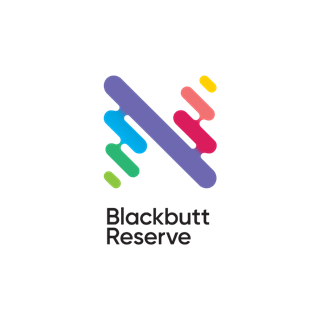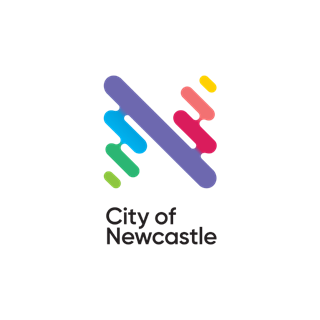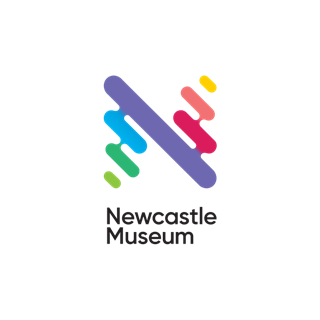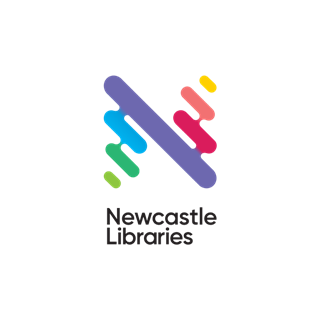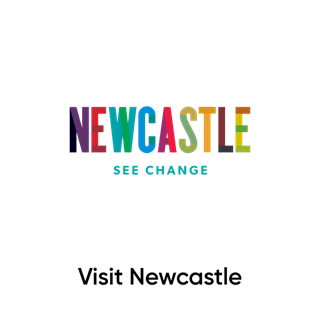Legislative requirements
This Strategy meets CN's legislative requirements for a Community Engagement Strategy under the Local Government Act (1993). Community participation related to strategic land use planning such as the public exhibition of planning documents and development applications is governed by the Environmental Planning and Assessment Act (EP&A Act 1979). CN's approach to engaging the community in decisions related to planning is outlined in the Community Participation Plan. |
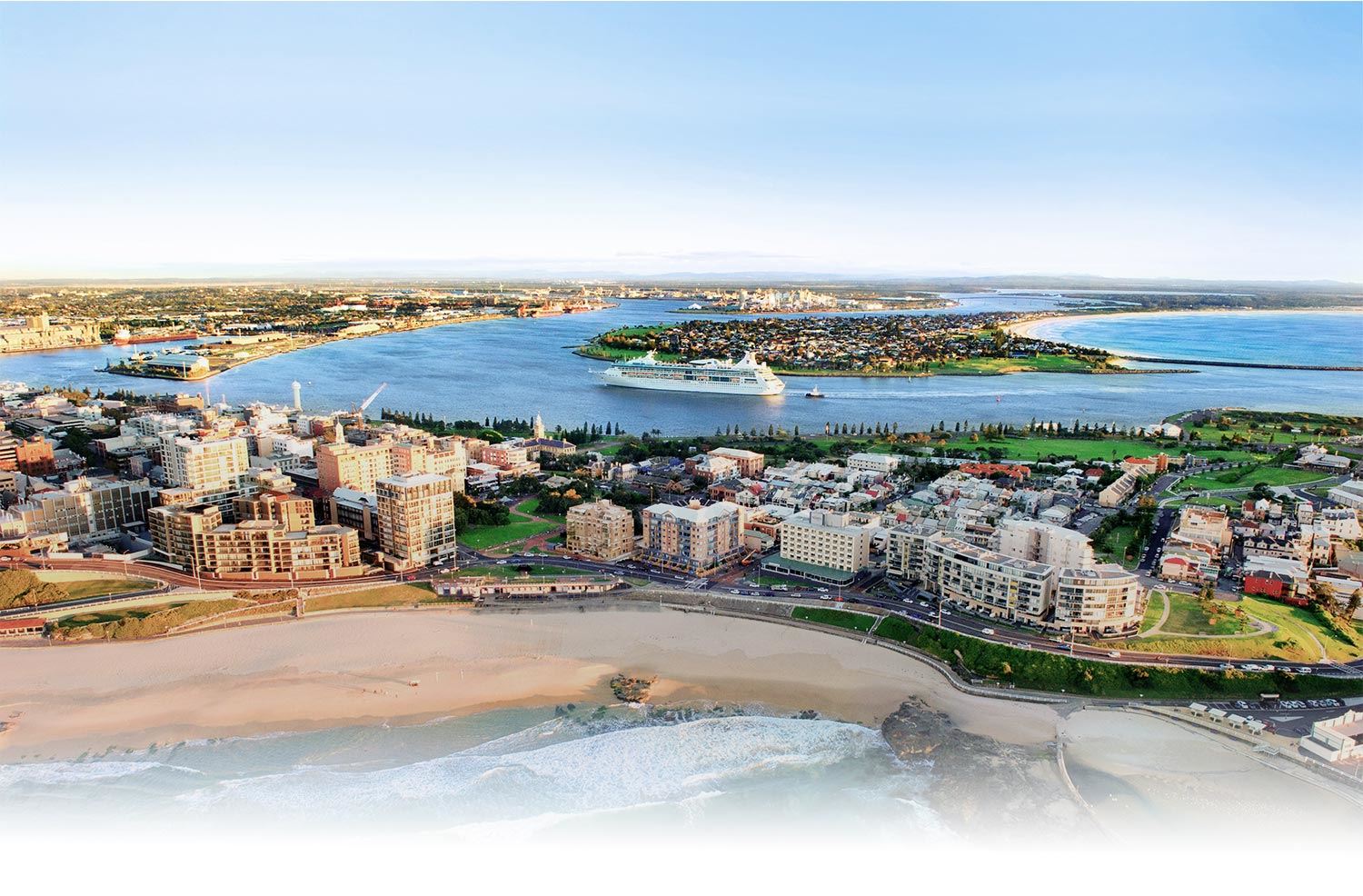
Community Engagement Strategy
It's Your Newcastle, Your Voice
We're committed to providing genuine, meaningful opportunities for everyone in our community to have their say and participate in decisions that shape the future of our city. We encourage you to join the conversation so we can work together to make Newcastle a liveable, sustainable, inclusive, global city.
Our Community Engagement Strategy is a framework for how we will work together with the community to develop our plans, policies, programs and key activities. View the Strategy on this page to learn more about how we will plan, design and deliver engagement activities including the tools and methods that we may use.
To ensure that everyone in our community can access information about how they can and when they can participate, we've developed multiple versions of this Strategy.
Read the Community Engagement Strategy by scrolling down the page, or download one of the versions below:
- View the Accessible PDF version
- View the Easy Read version
- View the Text only version
Have your say on projects that are open for feedback by visiting newcastle.nsw.gov.au/yoursay.
Your Newcastle, Your Voice
Community Engagement Strategy
2023-2026
Reviewed October 2024
newcastle.nsw.gov.au

Enquiries
For information contact
City of Newcastle
Phone 4974 2000
Published by
City of Newcastle
PO Box 489, Newcastle NSW 2300
Phone 4974 2000
newcastle.nsw.gov.au
© 2024 City of Newcastle
Contents
What informed our engagement approach
What our community wants from engagement
Alignment with CN Strategies and Plans
Listening and responding to community feedback
Evaluating and measuring success
Acknowledgment of Country
We all sit on Awabakal and Worimi land ‘Niirun Yalawa Awabakal and Worimi burrei’
City of Newcastle (CN) acknowledges its Local Government Area (LGA) sits within the Country of the Awabakal and Worimi peoples.
We acknowledge that Country for Aboriginal peoples is an interconnected set of ancient relationships. We acknowledge the custodianship of the Awabakal and Worimi peoples and the care and stewardship they have performed in this place since time immemorial.
We recognise the history of truth that acknowledges the impact of invasion and colonisation on Aboriginal and Torres Strait Islander people and how this still resonates today.
Always was, always will be Aboriginal land ‘Wunyibu wunyibu warra wunyibu wunyibu kuumba Guuri burrai’
Introduction
Our Community Engagement Strategy (the Strategy) provides a framework for how City of Newcastle (CN) will engage with the community to support the development of its plans, policies,programs and key activities.
CN recognises the importance of communication and engagement with our community to build trust, strengthen relationships, and improve both awareness and participation in the programs, services and activities that we deliver to the community. This Strategy provides clarity for the community to understand their role in CN and the elected Council's decision-making process.
Community involvement in decision-making
Community engagement enhances CN's capacity to make well-informed decisions that reflect community needs and priorities. Where possible, we will use input from the community to influence the final project outcomes or decisions.
The Strategy outlines:
 |  |  |  |  |
| Who we will engage | When we will engage | Tools and methods that we will use to engage | How the community can participate | How community feedback will inform our decision-making |
What is community engagement?
Community engagement is about CN and the community achieving together. It is a process that encourages the community to contribute their thoughts and ideas to help shape the future of our city. Community engagement is essential for building trust and fostering relationships between CN and our community. We proactively plan meaningful engagement opportunities to listen and respond to the current and future needs of our community.
Community engagement is not a single activity. It’s an ongoing conversation that allows us to build a stronger understanding of our Newcastle community and helps us make better decisions.
What informed our engagement approach
To help inform the development of this Strategy, we invited the community to share their views on community engagement at CN via an online survey and at a ‘Your Newcastle, Your Voice’ community workshop attended by around 80 Newcastle residents.
We also held an internal workshop with senior staff at CN and had discussions with CN Advisory Committees including the Access and Inclusion Advisory Committee, Guraki Aboriginal Advisory Committee and Youth Council.
From these engagement activities, we wanted to better understand:
- What good community engagement looks like
- How the community would like to be engaged, and through which communication channels
- The barriers to engagement
- Areas for CN to focus on regarding community engagement moving forward.
Thank you to everyone
who provided feedback and helped
shape our Community
Engagement Strategy.

What our community wants from engagement

We asked our community what good engagement looks like to help us understand what they value about the engagement experience.
Community members told us that they value:
- Feeling listened to and being heard
- When action is taken based on community feedback
- Speaking to a real person
- Transparency throughout the engagement process
- Open communication
- Access to information
- Open comment rather than tick-a-box
- Accessible and inclusive engagement with diverse groups
- Early, multi-stage engagement
- Meaningful and genuine engagement
- Being informed about how feedback has shaped a project or decision.
We also know from engagement during development of our Community Strategic Plan, Newcastle 2040, that our community wants decision-making to be:
- Evidence-based
- Transparent
- Open
- Collaborative
- Innovative.
We’ve used this information to
develop principles which will guide
when, how, why and who we
engage with in the community.
Our guiding principles
Our community engagement principles align with CN’s commitments as detailed in the Newcastle 2040 Community Strategic Plan. These commitments inform the actions we take, the choices we make, the behaviours we demonstrate and the interactions we have.
Our Newcastle 2040 commitments are:
|
Our community engagement principles have been developed from community feedback and are based on the social justice principles of equity, access, participation and rights.
Our community engagement principles are:
- Transparency: We will provide our community with clear, timely, concise and complete information about an engagement project that allows them to participate in a meaningful way.
- Inclusiveness: We will seek feedback from all those who may be impacted by a decision, and make sure it is easy and fair for everyone to participate.
- Meaningful: We will engage before the decision is made, listen to our community and consider their input as part of our decision-making.
- Commitment: We will plan for and allocate appropriate resources and tools for effective engagement.
- Accountability: We will share with our community how we used their input to make the decision.
Engagement objectivesThis Strategy provides a framework for how we will achieve the following engagement objectives: | ||
 Community members are informed about our plans and have genuine opportunities to participate in our decision-making processes |  Our community has trust in the engagement process |  Community engagement is embedded in the way we work and measure success |
 Engagement activities are inclusive and accessible for all members of our community | ||
Alignment with CN Strategies and Plans
Our engagement activities are generally linked to plans, strategies and work which is part of our Integrated Planning & Reporting Framework. Community engagement, and the feedback people provide, influences every part of what we do, including our day-to-day activities and overarching goals and strategies. As part of our planned community engagement activities, we strive to ensure that everyone in our community can fully participate in community life and genuinely influence decisions that affect their lives.
Integrated Planning & Reporting Framework
City of Newcastle plans, policies, programs and key activities are informed by State and Regional priorities such as:
- Relevant Regional Plans and Priorities
- State Plans and Strategies
- Joint Organisation Statement of Strategic Regional Priorities.
The Community Engagement Strategy (this document) provides a framework for how we will deliver community engagement activities:
- Newcastle 2040 Community Strategic Plan (CSP) – this is our highest-level strategic planning document representing our community's shared vision for the next 10+ years
- Examples of other supporting strategies and plans which relate to our long-term goals, priorities and actions include:
- Disability and Inclusion Action Plan
- Social Strategy
- Reconciliation Action Plan
- Delivering Newcastle 2040– this document demonstrates how we will achieve the community's vision within Newcastle 2040 including clear actions that guide the delivery of our services and projects
- Delivery Program
- Operational Plan
- Resourcing Newcastle 2040– this document is a roadmap for how we will use our resources to implement the community's vision within Newcastle 2040
- Long-term Financial Plan (our people)
- Workforce Development Strategic Plan (our finance)
- Asset Management Strategy and Plans (our assets)
- Reporting to our community– these documents provide an overview of our achievements, performance and progress towards achieving our goals within Newcastle 2040
- Performance Reports
- Annual Reports
- State of our City Report
We undertake continuous monitoring and review for all our strategies, plans, policies, programs and key activities.
The Community Engagement Strategy supports the delivery of actions within other key CN strategies and plans including the Newcastle 2040 Community Strategic Plan, Reconciliation Action Plan, Social Strategy and Disability and Inclusion Action Plan. Further detail about how the Community Engagement Strategy aligns with these strategies is outlined below.
Newcastle 2040 Community Strategic Plan

The Newcastle 2040 Community Strategic Plan is a shared community vision, developed as a guide to inform policies and actions throughout the city for the next 10+ years. The four key themes developed with input from the community are:
- Liveable
- Sustainable
- Creative
- Achieving Together.
While community engagement informs and relates to all themes, 'Achieving Together' specifically involves our people coming together to collaborate, share great ideas and opportunities, and co-create positive change for our organisation and city.
Within the theme of 'Achieving Together', this Strategy supports the delivery of Action 4.2 'Trust and transparency'.
4.2 Trust and Transparency
4.2.1 Genuine engagement
Encourage participation and provide opportunities for genuine, representative community engagement. Engagement is planned, proactive and meaningful and results in a shared responsibility for success, where people are inspired to actively participate in decision-making to shape Newcastle’s future.
4.2.2 Shared information and celebration of success
Proactively share clear, consistent, accessible and relevant information with the community, leading to an understanding of CN’s actions and decisions. Celebrate the success of CN and the community by sharing positive stories across communication channels.
4.2.3 Trusted customer experience
Continuously review and improve our service delivery to meet our customers’ needs, creating great physical and digital experiences, focusing on transparency and building trust in CN.
Reconciliation Action Plan 2021-2024

The Reconciliation Action Plan (RAP) outlines CN's vision for reconciliation and reiterates our commitment to attaining a fair and truthful relationship between all the Newcastle communities and the Aboriginal and Torres Strait Islander peoples who live and work here. CN celebrates and respects the cultures, histories and rights of the Awabakal and Worimi peoples. We actively value the contribution of Aboriginal and Torres Strait Islander peoples to our community.
The RAP organises actions and deliverables under four pillars - relationships, respect, opportunities and governance. Key deliverables in the relationship pillar are pertinent to CN’s approach for engaging with Aboriginal and Torres Strait Islander peoples, including:
- Continuing to engage with CN's Guraki Aboriginal Advisory Committee to provide advice on strategic matters of importance to local Aboriginal and Torres Strait Islander communities
- Developing and implementing an Aboriginal Engagement Strategy in consultation with CN's Guraki Aboriginal Advisory Committee to engage with Aboriginal & Torres Strait Islander peoples in the LGA
- Meeting with local Aboriginal and Torres Strait Islander organisations to develop guiding principles for future engagement.
The Strategy also supports empowering Aboriginal and Torres Strait Islander voices to be part of civic processes at a local government level, and promoting reconciliation through ongoing active engagement with stakeholders and community members.
This Strategy supports these key deliverables in the RAP by ensuring timely and appropriate consultation with CN's Guraki Advisory Committee and CN staff to identify how we can achieve equitable representation of Aboriginal and Torres Strait Islander voices in the feedback that we hear from the community. To effectively engage with this community, we need to involve Aboriginal and Torres Strait Islander peoples.
Social Strategy

CN's Social Strategy seeks to address barriers to inclusion and equal opportunity, encourage community connection and participation, celebrate our rich social and cultural diversity, and strengthen community health and wellbeing.
This Strategy supports key actions within the Social Strategy by facilitating access to information for community participation and enabling active citizenship through community representation, civic awareness and public participation in civic life.
Disability Inclusion Action Plan 2022-2026

Through the Disability Inclusion Action Plan (DIAP), CN commits to:
- Advocate for the equal rights of all
- Improve the accessibility and inclusiveness of our city and community
- Collaborate with business, government and community groups to make Newcastle a more disability-confident city
- Improve employment opportunities for people with disabilities
- Provide services, programs, events and facilities that are respectful and inclusive of people with disabilities, their families, carers and significant others.
This Strategy supports key actions within the DIAP such as inclusive and accessible community engagement events, accessibility of web content and documents and ensuring people with disabilities are equitably represented in engagement activities.
Our engagement approach
Overview of the engagement process
Below is an overview of what we will consider during each stage of the engagement process, from planning engagement activities through to delivery, reviewing the effectiveness of our engagement and sharing information about how input from the community was used to inform our decision-making.
 |
|
 | 2. Engagement planning and delivery
|
 | 3. Review of engagement and feedback
|
 | 4. Decision-making
|
 | 5. Reporting on engagement outcomes
|
IAP2 Spectrum of Public Participation
We use best practice engagement resources, models and approaches developed by the world-renowned International Association for Public Participation (IAP2). Among these resources is the IAP2 Public Participation Spectrum.
The IAP2 Spectrum has five levels of engagement that correspond to the community’s increasing level of influence on decision-making. The IAP2 Spectrum helps us to determine the appropriate scope of input from the community and the role that the community will have in the decision-making process.
IAP2 Spectrum
Increasing influence on the decision
1. Inform
- Goal: To provide information about something where the decision has already been made.
- Our approach: We will keep the community informed about CN's activities, decisions made and direction.
- Role of the community: Listen
2. Consult
- Goal: To obtain community feedback on ideas or projects to progress the decision-making.
- Our approach: We will listen to and acknowledge community concerns and aspirations and provide feedback on how community input influenced the decision.
- Role of the community: Contribute
3. Involve
- Goal: To work directly with the community throughout the process to ensure that concerns and aspirations are consistently understood and considered.
- Our approach: We will work with the community to ensure that concerns and aspirations are directly reflected in the options developed and provide feedback on how community input influenced the decision.
- Role of the community: Participate
4. Collaborate
- Goal: To partner with the community in each aspect of the decision including the development of options and identification of the preferred solution.
- Our approach: We will work with the community, so their advice, innovations and recommendations are included in the final decision that we make together.
- Role of the community: Partner
5. Empower
- Goal: To place final decision-making in the hands of the community.
- Our approach: We will implement what you decide.
- Role of the community: Decide
Why we engage
 |  |  |
There are many reasons why we undertake community engagement and while it is often used to inform our decision-making, we may also undertake engagement to:
- Share information
- Comply with legislation
- Understand community sentiment
- Problem solve
- Improve proposals
- Build or enhance relationships
- Change behaviours
- Identify a problem or opportunity
- Manage risk
- Develop community capacity or resilience
- Generate support.
Understanding why we are engaging will help us determine who, how and when we will need to engage.
When we engage
When we engage with the community varies depending on the complexity and nature of the activity, as well as the level of impact on the community.
Times we may engage with the community include:
- Change in service or strategic direction is proposed
- New project, plan or initiative being developed
- Significant policy, strategy or plan being developed or changed
- Major infrastructure projects being considered or planned
- Issue raised that requires a decision
- Decisions being made that will impact our community.
Generally, the greater the level of impact and reach of a project, the greater the level of community engagement we will undertake to inform our decision-making.
When we won’t engage
There are some circumstances when we will not engage with the community. For example:
- No scope for community influence
- Public health and safety are at risk
- Immediate resolution is required, or we are responding to an emergency
- Matter is strictly confidential or commercially sensitive
- Developing or reviewing internal procedures and protocols
- Legal constraints.
Who we engage
Our Community
The City is located in the Hunter Region of NSW. The Council area is bounded by the Lake Macquarie Council area to the south, Port Stephens Council area to the north and Maitland and Cessnock Council areas to the west.

Our population
Newcastle population 2024
174,529
Population by 2046
205,445
Greater Newcastle population 2021
604,115
Population by 2041
773,825
Estimated annual population growth rate 1%
Median age
Newcastle 37
NSW 39
Aboriginal and Torres Strait Islander population
Newcastle 4.4%
NSW 3.4%
Born overseas
Newcastle 15%
NSW 29%
Speak a language other than English
Newcastle 11%
NSW 27%
134 different languages spoken at home – most widely spoken included Mandarin, Macedonian, Italian, Greek, Arabic AND languages spoken with greatest need for translation included Arabic, Mandarin, Swahili, Persian/Dari and Tibetan.

Our stakeholders
A stakeholder is any individual, group of individuals, organisation or entity with a specific stake in the outcome of a decision made by CN. Our stakeholders can vary significantly from project to project.
We understand that people are most interested in decisions and projects that personally impact them or their family which is why we will seek out the stakeholder groups who will be most impacted by a project.
Below is a list of the stakeholder groups who may have an interest in or be impacted by our decisions and projects.
Stakeholder groups
- Residents and ratepayers
- Community groups and organisations
- CN facility users e.g. customer service, libraries, art gallery, museum, childcare centres, sporting and recreation facilities
- Visitors and tourists
- Businesses
- Industry groups, Business Associations and special interest groups
- Aboriginal and Torres Strait Islander communities
- Culturally and Linguistically Diverse (CALD) communities
- CN Advisory Committees such as the Access & Inclusion Advisory Committee, Guraki Aboriginal Advisory Committee, Youth Council
- Local Aboriginal Land Councils and Registered Aboriginal Parties
- State and Federal Members of Parliament
- Government agencies including Transport for NSW, the Department of Planning and Environment, Hunter Central Coast Development Corporation, NSW Health, Department of Education, Office of Local Government, Destination NSW, NSW Office of Sport, Crown Lands


Aboriginal and Torres Strait Island peoples and culture
Aboriginal and Torres Strait Island peoples and culture have been identified as one of six commitments in the Newcastle 2040 Community Strategic Plan.
CN commits to developing a genuine understanding of our shared history and its lasting impact on Aboriginal and Torres Strait Islander peoples so that we do not repeat past injustices. We embrace moving forward together and building a relationship based on mutual respect that acknowledges, values and celebrates Aboriginal and Torres Strait Islander peoples, their spirits, their spiritual beliefs and their culture. CN commits to delivering economic and social outcomes for Aboriginal and Torres Strait Islander peoples.
Inclusive and accessible engagement
We want to hear from all members of our community to make sure that what we deliver for our community is informed, relevant and responsive to community needs. We recognise that some groups are less likely to participate and may face additional barriers or challenges in engaging with us. These groups include:
 First Nations People |  People with disabilities and their carers |  Older people |
 People from a CALD background |  Children and young people |  LGBTQIA+ community |
We know from our early engagement for this Strategy that we need to make inclusion of diverse groups a key priority.
Some of the ways that we will do this are:
- Identifying hard-to-reach groups during engagement planning
- Using a range of engagement methods and tools that cater to the needs of hard-to-reach groups, including CN's Advisory Committees
- Continuing to engage with CN's Guraki Aboriginal Advisory Committee to provide advice on strategic matters of importance to local Aboriginal and Torres Strait Islander communities
- Providing our engagement materials in accessible formats
- Translating our engagement materials when required
- Hosting our engagement events in accessible venues and locations
- Providing more in-person opportunities, where appropriate.
How we engage
Communication and engagement tools are what we use to inform and collect feedback from the community. There is a wide range of tools to choose from and we select tools based on the purpose of the engagement, the information we want to collect, the stakeholder groups we want to hear from, the impact of the project and the time available to make a decision. COVID-19 and access to technology have changed the way we connect, but in a post-COVID world, our research suggests there is an appetite for greater in-person interaction.

Using the IAP2 model as a guide to the appropriate participation level, some of the tools that we use include:
Inform
CN website, social media and e-newsletters
We'll provide information via:
- CN's websites and Have Your Say page
- Social media, such as Facebook, Twitter, LinkedIn and YouTube
- e-newsletters.
Advertisements, signage, letters, printed materials
We'll use these channels to:
- Invite the community to participate in engagement activities
- Notify the community about upcoming projects and works
- Advise the community where to access further information
- Advise how and when to have your say.
CN Customer Service Centre and Libraries
- The community can visit the Customer Service Centre and Libraries for information about projects that are open for community feedback and receive help with submitting feedback.
Consult and Involve
Have Your Say
Have Your Say is CN's dedicated online engagement platform where the community can provide feedback on a broad range of projects. We may seek feedback via polls, surveys, written submissions, mapping tools, discussion boards and other digital tools.
Community workshops and focus groups
Meetings with community members and stakeholders to provide opportunities for discussion and feedback. Meetings may be held in-person, online or with a hybrid approach.
Council meetings/briefings
Members of the community can participate in Council's formal meeting process prior to a decision being made, as outlined in Council's Public Voice and Briefings Policy. This can include speaking at a Public Briefing Forum.
Public exhibitions
During public exhibition, community members and stakeholders can view and provide feedback on plans, policies or projects.
Surveys
Surveys may be used to collect broad feedback from the community rather than on a specific project such as the Community Satisfaction Survey or the Liveability and Wellbeing Survey.
Drop-in sessions and pop-up stalls
Opportunities for the community to attend a face-to-face session and ask the project team questions or provide feedback.
Collaborate and Empower
Advisory Committees
Committees made up of various members of our community, stakeholders and Councillors who advise CN on the priorities and interests of a stakeholder group or subject area.
Deliberative processes such as citizen juries
Deliberative forums are used for in-depth consideration of an issue by a cross-section of the community to provide informed feedback on a particular issue.
Community and stakeholder reference groups
Groups of community members and stakeholders that meet with CN staff, Councillors or others to work through an issue, determine a decision for a project, policy or plan and provide advice.
Listening and responding to community feedback
Timing of our engagement
1. Early engagementWherever possible we will conduct early engagement to seek initial feedback from the community and to inform the development of policies, strategies or plans. |  |
2. Public exhibitionPublic exhibition is the official period in which a draft document is made available for consultation and feedback. This process is important for enabling the community to participate in CN's planning and decision-making. All community members and stakeholders who are interested in a project are encouraged to provide feedback on the draft document. CN may promote a public exhibition through social media, media release and on CN's website as well as directly through our e-newsletters. Other matters such as planning approvals may be publicly exhibited under legislation. Our approach to engaging the community about land use planning is outlined in our Community Participation Plan. |  |
3. Post-engagementAfter the engagement, we'll provide feedback on the decisions made including outcomes and next steps. |  |
How we use the feedback from the community

Once the engagement is completed, we'll review all feedback provided by the community and analyse the data. This may include:
- Collating and reviewing all responses
- Analysing the data to identify sentiment, themes, issues and priorities
- Assessing any gaps in participation and information needs
- Identifying any feedback that is out of scope
- Responding to community members where a response is required
- Where appropriate, incorporate ideas and suggestions from the community.
Closing the loop
This step involves summarising and reporting on the engagement activities undertaken. We'll include information such as:


Engagement reach and who we heard from (including key demographic information)

Summary of the key themes and issues

What we intend to do next.
Evaluating and measuring success
We evaluate engagement activities against our objectives and desired outcomes. We use the insights from this process to continuously improve our engagement practices.
We use a range of information sources such as feedback from the community, insights from CN project teams, metrics from our website and the demographic information we collect to help us understand how well we're tracking against these objectives.

 | Objective 1 |
 | Objective 2 |
 | Objective 3 |
 | Objective 4 |

